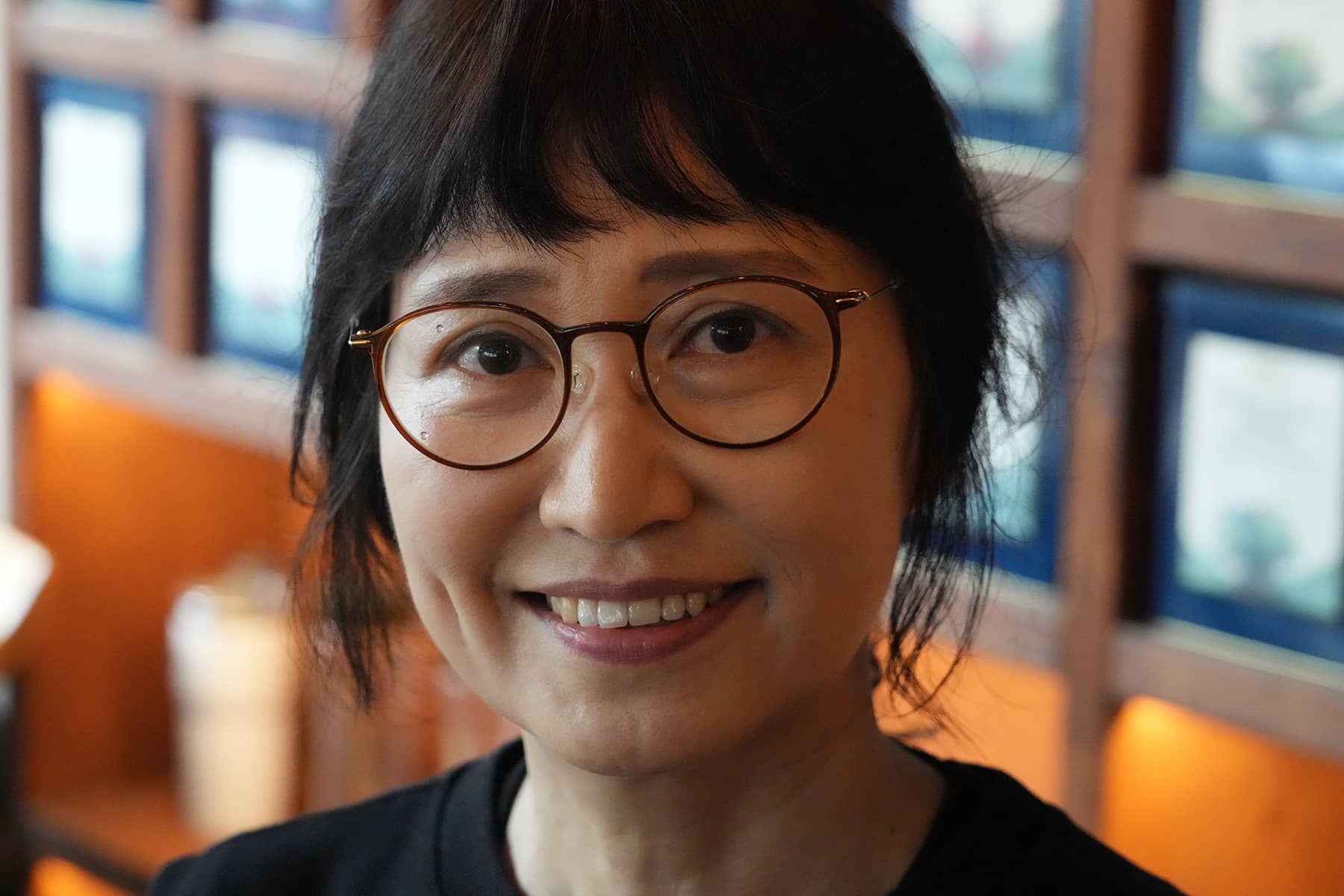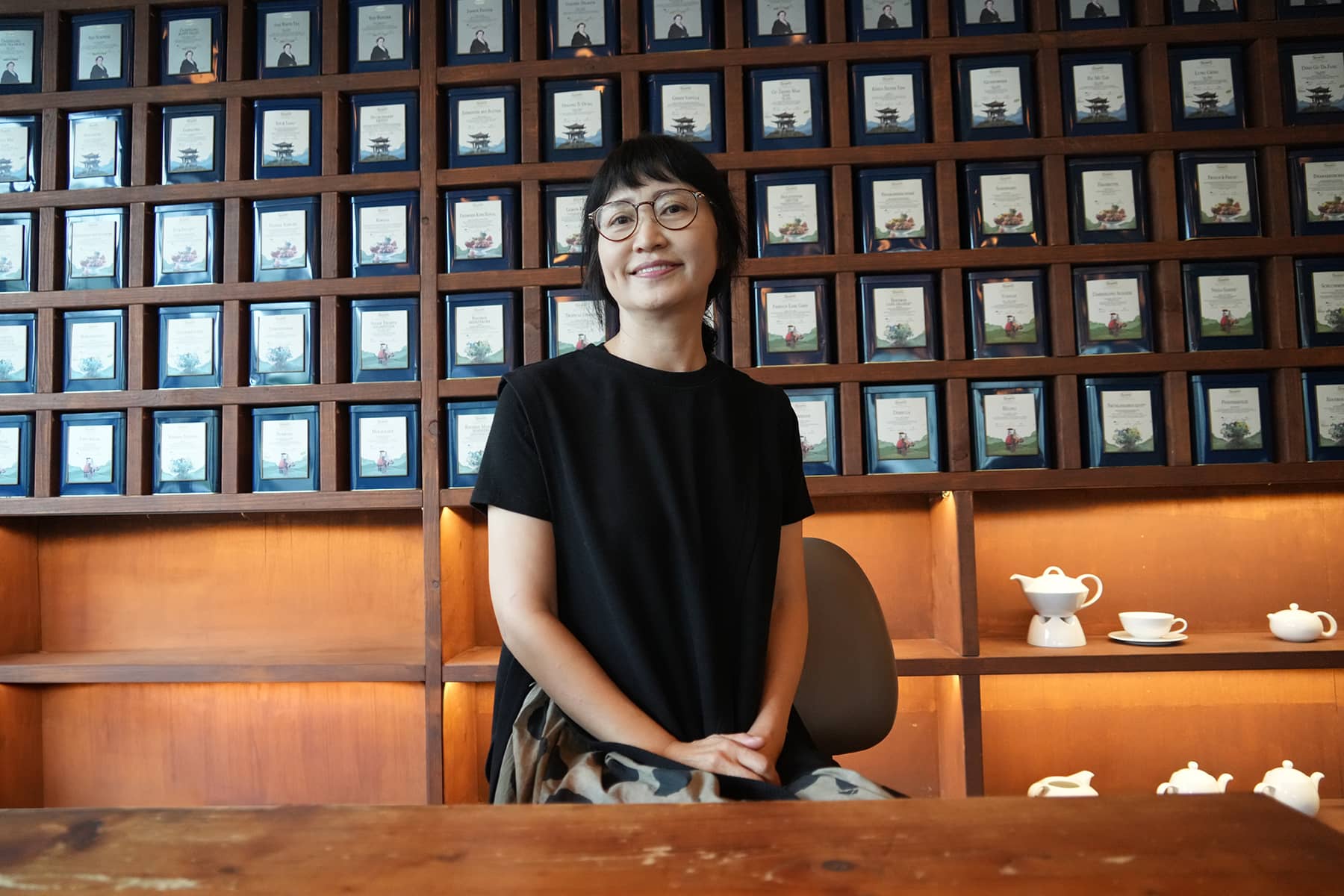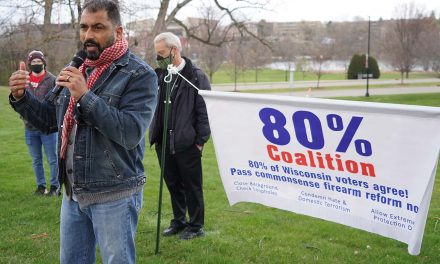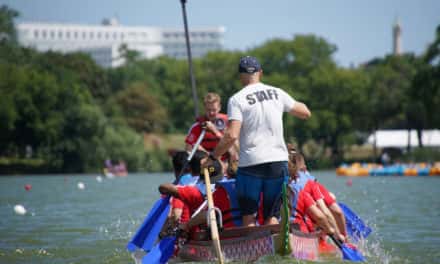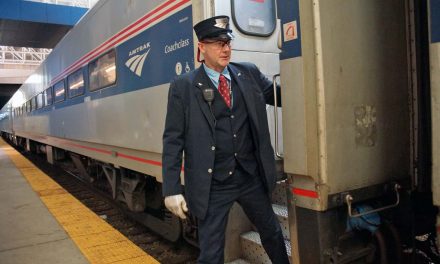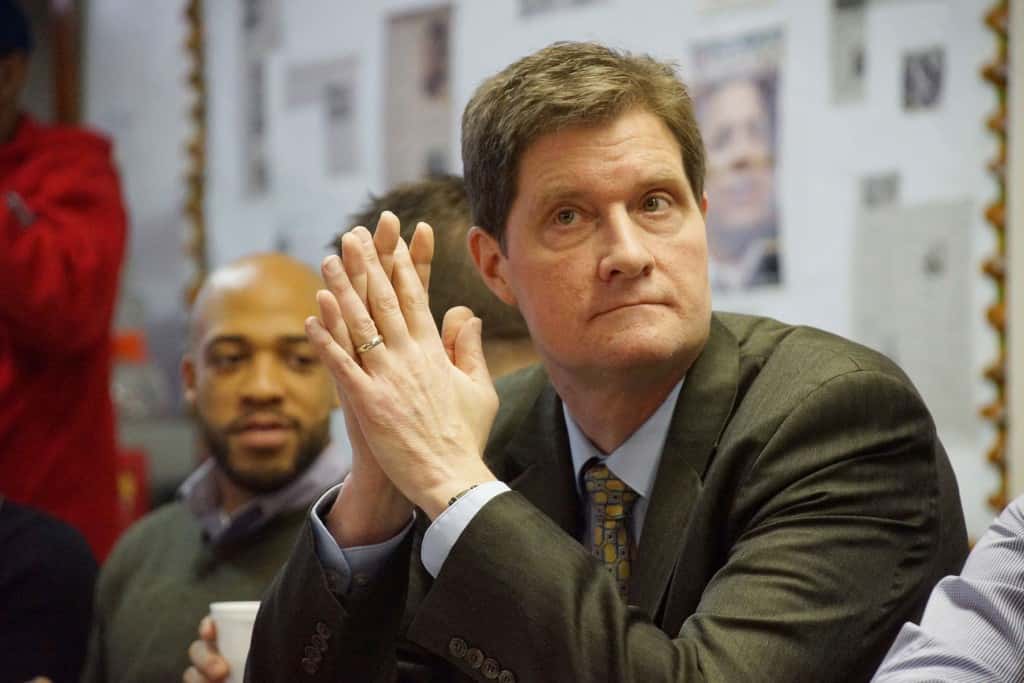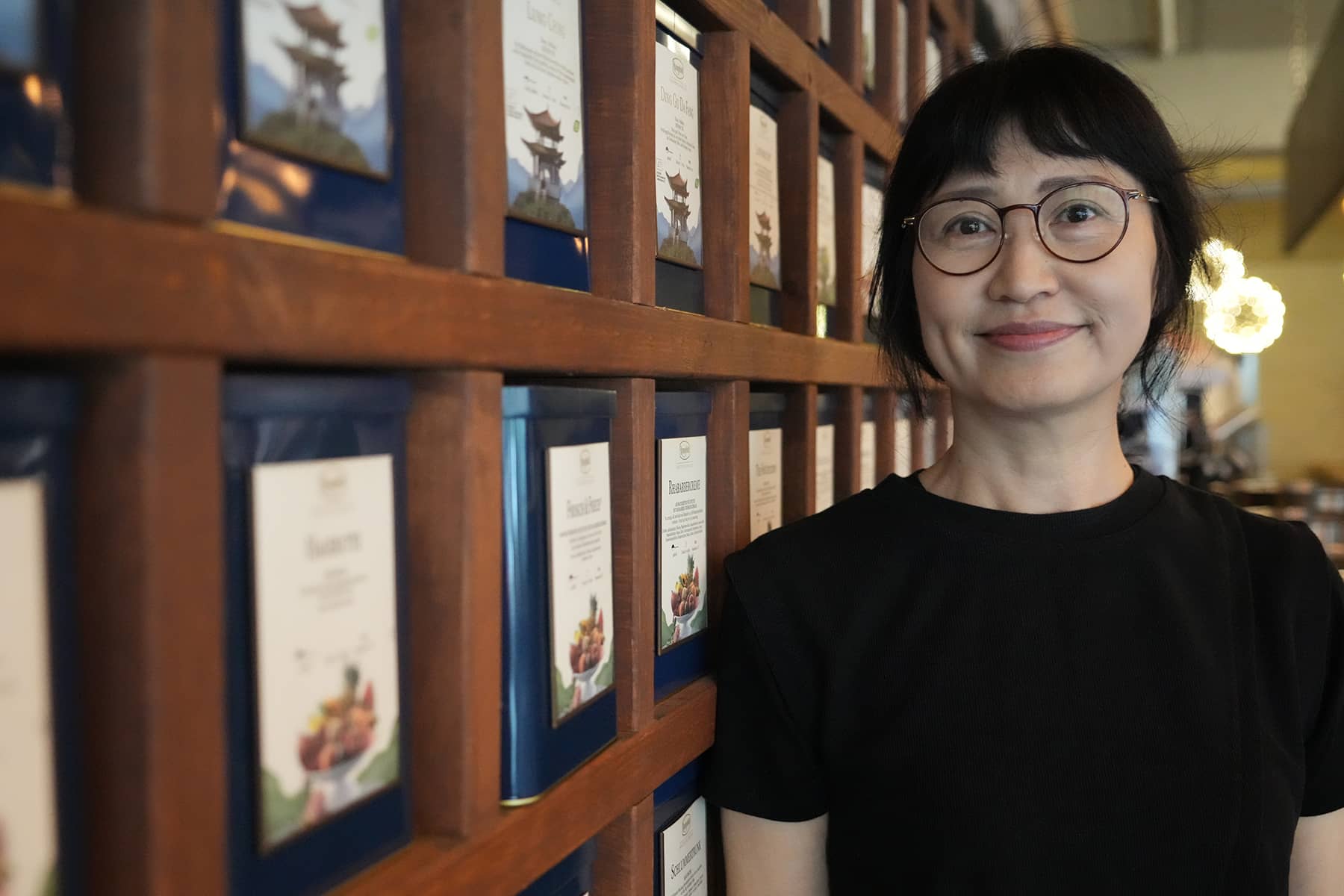
From her early youth spent living in the Korean countryside to the challenges of moving to Milwaukee and working in her mature years, Hyunjoo Han experienced an unconventional life journey that she never expected.
Han’s bold decision to work in America opened her eyes to the complexities of a multicultural world. Immersed in the new environment, her time in Milwaukee was influential to her outlook on her native Korean society, exposing her to new ideas and perspectives.
Reflecting on her past and time in America, Han spoke with Milwaukee Independent in Seoul about how those experiences had expanded her sense of identity and brought about a profound shift in the way she understood her own country.
“I used to visit my grandparents’ house for vacation every summer. They lived in a small village surrounded by mountains,” said Han. “My siblings and I spent days diving into the water in the near valley, exploring unknown forest paths, and tasting fresh fruits and vegetables from Granny’s garden.”
Han said she could still remember the scent of grass in the hot summer air, and the sound of a variety of birds and bugs. The scenery of the dark green mountains and rice terraces also filled her with an understanding of the natural environment. Even though her grandparents have all passed away, and their old house is no longer standing, she still clings to those memories of her youth, holding them in her heart.
As for her journey to Milwaukee, it came unexpectedly and rather late in her career. In 2006 she finished the TESOL (Teaching English to Speakers of Other Languages) course. It was offered by Ajou University, and the program led her to teach English at a private academy.
“A year after, a professor from the TESOL program recommended me to study abroad. Ajou University had a partnership with the University of Wisconsin-Milwaukee and offered an exchange program to students who wished to study at UW-Milwaukee,” said Han. “I applied to the MA degree program and got an admission with a TAship. I had never expected to study abroad at the age of 40. I knew that it would be challenging but worth it. So I finally moved to Milwaukee in 2008.”
Some of Han’s fondest memories of Milwaukee revolved around the access she had to nature. She said it was a big contrast after living in Seoul.
“I loved the tall trees, the parks, and Lake Michigan. Living in a city like Seoul, we have to travel far to see nature. But in Milwaukee, I just had to open the door, and nature was right there to welcome me,” said Han. “It was a wonderful experience. I also feel fortunate that my kids grew up in a different environment compared to Korea.”
Han’s eventual return to South Korea occurred before she was ready, after making a life in Milwaukee and plans to stay in America. When she finished her Master of Arts degree, her husband wanted to go to law school. He had previously been an engineer who studied for his PhD program at Virginia Tech. After working for Samsung for years, he started his own business. It was a quite successful semiconductor design and service company. However, he did not like his job very much.
“My husband wanted to try a whole different field. After completing law school, he passed the New York bar exam,” said Han. “He planned to work in a law office for a couple of years as a trainee, but he developed a health issue which stopped him from going further. He needed medical treatment and surgery and we moved back to Korea in 2016.”
The abrupt return to her homeland was welcomed, but it also took some adjustments. She referenced an old Korean saying about her transitional experience, “The frog in the well knows nothing of the sea” (우물 안 개구리). The metaphorical expression emphasizes the limited perspective of how someone who is confined to a small and familiar environment may be unaware of the broader world and its vast possibilities.
“I had thought that I was not like a frog in the well because I had traveled to many countries, even before I moved to Milwaukee. And I had lived in America for two years in the 1990s,” said Han. “However, when I arrived in Milwaukee, I realized that I was still in the well. When I was young, Korea was a very homogeneous society speaking the same language, sharing the same customs, and acquiring the same traditional values. So I could not really know how many different cultures and perspectives of the world were out there. In short, I didn’t have a global perspective back then.”
In contrast, Han said the U.S. was a multicultural society and had racial diversity. She thought that people living in such multicultural neighborhoods would be more open-minded and generous to other cultures. She reasoned that tolerance and respect for others would be a helpful attitude for people to be able to live in harmony.
“The variety of cultural differences and new viewpoints that I experienced in Milwaukee helped me grow in many ways. In particular, I was impressed by people’s consideration and understanding of the sexual minority,” said Han. “For example, many buildings in Milwaukee have gender-neutral restrooms. The issue of the sexual minority is still not openly discussed in Korea. Koreans take a very conservative stance on it. We may need more flexibility to discuss the issue, because it seems to take some time for Koreans to move forward.”
Her Milwaukee experiences helped Han to become a person who was more flexible and less biased toward differences. As a result, she felt better prepared to embrace changes as South Korea rapidly developed into a multicultural society.
“Living in Korea as a Korean has not been frustrating so far, but I consider myself lucky for successfully surviving in Korea’s competitive society. What I really enjoy most since I came back to Korea is that I can see my parents and siblings whenever I want to,” said Han. “I moved back to Korea from Milwaukee around the time one of my sisters came back from Argentina. One of my brothers has also been visiting us from Canada as often as he can.”
Han has two brothers and two sisters, and felt fortunate to be very closely connected to each other. She said that reuniting with her family was the best part of moving back to South Korea. That fact alone overshadowed anything that she missed from her life in Milwaukee.
“These days, my siblings often spend time together going on a day trip, having brunch, and visiting each other for special occasions. For the past three years, we have been visiting royal tombs of the Joseon dynasty,” said Han. “There are 40 tombs in Seoul and the surrounding areas, and they are recognized as UNESCO World Heritage sites. We have a goal to visit every single tomb and we really enjoy these one-day trips.”
There are times when Han reflects fondly on her days in Milwaukee. Particularly when she taught Korean to Korean American children at a Korean school program offered by a local church. They also had a cultural event every year, inviting the local community to try Korean food and learn about Korean culture.
“Many people participated in the events, and I felt it was a wonderful opportunity for both Korean Americans and Americans to understand each other’s cultures,” said Han.
Life in Seoul, while exciting and rejuvenating, also brings tensions for anyone who lives so close to the border with North Korea. Han said she thought most Koreans felt the potential tensions often because the Korean War was not completely over.
“We are just in the state of armistice,” said Han. “However, we feel safe at the same time because Korean military power is top tier, and other socioeconomic indexes are also dominant over North Korea. We believe that we can defend ourselves whatever happens. It’s not predictable, however, how reckless Kim Jong Un can be. He could go crazy and provoke us anytime.”
On the bright side, Han said that since the 1990s there had been countless North Korean people who crossed the border to the South. That signaled the possibility of unification of both Koreas. Han and many Koreans of her generation are still looking forward to seeing that dream come true as soon as possible. If it could happen for Germany, maybe one day Korea.
Even though Han’s work keeps her busy and focused on her life in South Korea, she still keeps in touch with a few of the deep connections she made in Milwaukee. One friend is Korean American and a professor at UW-Milwaukee.
“She has visited Korea several times with her family since 2016, and we had a good time sharing stories from Milwaukee,” said Han. “Some of my students that I used to teach in Korean class at UWM have been working in Seoul and we have been keeping in touch. Once, I invited them to my house for lunch and I was invited to their Thanksgiving party.”
Another friend was a Korean instructor who has been teaching Korean at UWM for over 10 years. She continues to share news about UWM and sends Milwaukee updates to Han.
“My son often searches Bay Shore Mall, which was close to our old residence in Milwaukee, on Google Maps. He lets me know which stores have closed and which still remain open,” said Han.
Beyond food and K-pop, there are many other aspects of Korea and Korean heritage that she hopes people in Milwaukee will learn about. Han felt the best way to achieve that would be from advocates of Korean culture, but also the first-hand experience and exposure that only comes from a visit to South Korea.
“Korea is a very dynamic and energetic country. People are diligent, hard-working, and well-motivated. If Milwaukeeans have a chance to visit Seoul, the capital of South Korea, they would feel the energy and vitality of the megalopolis everywhere,” said Han. “In addition, there are tons of fun things to enjoy and they’ll never get bored. Also, Korea is now shifting to a multicultural society.”
Han said that in the 1970s, the small town where she grew up had a population of 200,000. The only foreigners that she ever saw in the area were Mormon evangelists. But that condition has changed dramatically in recent years.
“Koreans used to feel proud about being a homogeneous ethnic group. This led them to misunderstandings and biased perspectives about other cultures. However, there are more than two million foreigners in Korea now,” said Han. “Koreans have been changing their perspectives rapidly and trying to be more open-minded and tolerant of other cultures. Koreans are also very friendly, polite, and willing to help each other, even foreigners.”
Hangul, the Korean alphabet, was also one aspect of Korean culture that Han was very proud of. She encouraged Milwaukee youth to make some time to learn it, as an investment in their future.
“King Sejong created Hangul in 1446, and Hangul is the only alphabet in the world that has its own birthday,” said Han. “According to a number of linguists, Hangul is a very scientific and systematic phonogram. It’s very easy to learn and convenient to type on digital devices. Hangul and the Korean language would be a great option for those who are interested in learning a foreign language.”
At the heart of Korean relationships exists the concept of “jeong” (정), a deeply rooted and complex term that does not have a direct English translation. It encompasses feelings of affection, care, attachment, and a sense of connectedness. Jeong goes beyond simple kindness or empathy. It is a long-lasting sense of loyalty and warmth, surrounded by the bond of shared experiences. The paradox of jeong also makes it unique, an attachment that endures quietly, often unspoken, yet it is profoundly influential in Korean culture.
“I really want people in Milwaukee to experience the Korean concept of jeong,” Han added. “It is such a warm feeling of attachment felt between people who share a close relationship. This is a special and unique feeling that can’t be fully described. I hope they experience the jeong, the affection of Korea, for themselves.”
- Exploring Korea: Stories from Milwaukee to the DMZ and across a divided peninsula
- A pawn of history: How the Great Power struggle to control Korea set the stage for its civil war
- Names for Korea: The evolution of English words used for its identity from Gojoseon to Daehan Minguk
- SeonJoo So Oh: Living her dream of creating a "folded paper" bridge between Milwaukee and Korean culture
- A Cultural Bridge: Why Milwaukee needs to invest in a Museum that celebrates Korean art and history
- Korean diplomat joins Milwaukee's Korean American community in celebration of 79th Liberation Day
- John T. Chisholm: Standing guard along the volatile Korean DMZ at the end of the Cold War
- Most Dangerous Game: The golf course where U.S. soldiers play surrounded by North Korean snipers
- Triumph and Tragedy: How the 1988 Seoul Olympics became a battleground for Cold War politics
- Dan Odya: The challenges of serving at the Korean Demilitarized Zone during the Vietnam War
- The Korean Demilitarized Zone: A border between peace and war that also cuts across hearts and history
- The Korean DMZ Conflict: A forgotten "Second Chapter" of America's "Forgotten War"
- Dick Cavalco: A life shaped by service but also silence for 65 years about the Korean War
- Overshadowed by conflict: Why the Korean War still struggles for recognition and remembrance
- Wisconsin's Korean War Memorial stands as a timeless tribute to a generation of "forgotten" veterans
- Glenn Dohrmann: The extraordinary journey from an orphaned farm boy to a highly decorated hero
- The fight for Hill 266: Glenn Dohrmann recalls one of the Korean War's most fierce battles
- Frozen in time: Rare photos from a side of the Korean War that most families in Milwaukee never saw
- Jessica Boling: The emotional journey from an American adoption to reclaiming her Korean identity
- A deportation story: When South Korea was forced to confront its adoption industry's history of abuse
- South Korea faces severe population decline amid growing burdens on marriage and parenthood
- Emma Daisy Gertel: Why finding comfort with the "in-between space" as a Korean adoptee is a superpower
- The Soul of Seoul: A photographic look at the dynamic streets and urban layers of a megacity
- The Creation of Hangul: A linguistic masterpiece designed by King Sejong to increase Korean literacy
- Rick Wood: Veteran Milwaukee photojournalist reflects on his rare trip to reclusive North Korea
- Dynastic Rule: Personality cult of Kim Jong Un expands as North Koreans wear his pins to show total loyalty
- South Korea formalizes nuclear deterrent strategy with U.S. as North Korea aims to boost atomic arsenal
- Tea with Jin: A rare conversation with a North Korean defector living a happier life in Seoul
- Journalism and Statecraft: Why it is complicated for foreign press to interview a North Korean defector
- Inside North Korea’s Isolation: A decade of images show rare views of life around Pyongyang
- Karyn Althoff Roelke: How Honor Flights remind Korean War veterans that they are not forgotten
- Letters from North Korea: How Milwaukee County Historical Society preserves stories from war veterans
- A Cold War Secret: Graves discovered of Russian pilots who flew MiG jets for North Korea during Korean War
- Heechang Kang: How a Korean American pastor balances tradition and integration at church
- Faith and Heritage: A Pew Research Center's perspective on Korean American Christians in Milwaukee
- Landmark legal verdict by South Korea's top court opens the door to some rights for same-sex couples
- Kenny Yoo: How the adversities of dyslexia and the war in Afghanistan fueled his success as a photojournalist
- Walking between two worlds: The complex dynamics of code-switching among Korean Americans
- A look back at Kamala Harris in South Korea as U.S. looks ahead to more provocations by North Korea
- Jason S. Yi: Feeling at peace with the duality of being both an American and a Korean in Milwaukee
- The Zainichi experience: Second season of “Pachinko” examines the hardships of ethnic Koreans in Japan
- Shadows of History: South Korea's lingering struggle for justice over "Comfort Women"
- Christopher Michael Doll: An unexpected life in South Korea and its cross-cultural intersections
- Korea in 1895: How UW-Milwaukee's AGSL protects the historic treasures of Kim Jeong-ho and George C. Foulk
- "Ink. Brush. Paper." Exhibit: Korean Sumukhwa art highlights women’s empowerment in Milwaukee
- Christopher Wing: The cultural bonds between Milwaukee and Changwon built by brewing beer
- Halloween Crowd Crush: A solemn remembrance of the Itaewon tragedy after two years of mourning
- Forgotten Victims: How panic and paranoia led to a massacre of refugees at the No Gun Ri Bridge
- Kyoung Ae Cho: How embracing Korean heritage and uniting cultures started with her own name
- Complexities of Identity: When being from North Korea does not mean being North Korean
- A fragile peace: Tensions simmer at DMZ as North Korean soldiers cross into the South multiple times
- Byung-Il Choi: A lifelong dedication to medicine began with the kindness of U.S. soldiers to a child of war
- Restoring Harmony: South Korea's long search to reclaim its identity from Japanese occupation
- Sado gold mine gains UNESCO status after Tokyo pledges to exhibit WWII trauma of Korean laborers
- The Heartbeat of K-Pop: How Tina Melk's passion for Korean music inspired a utopia for others to share
- K-pop Revolution: The Korean cultural phenomenon that captivated a growing audience in Milwaukee
- Artifacts from BTS and LE SSERAFIM featured at Grammy Museum exhibit put K-pop fashion in the spotlight
- Hyunjoo Han: The unconventional path from a Korean village to Milwaukee’s multicultural landscape
- The Battle of Restraint: How nuclear weapons almost redefined warfare on the Korean peninsula
- Rejection of peace: Why North Korea's increasing hostility to the South was inevitable
- WonWoo Chung: Navigating life, faith, and identity between cultures in Milwaukee and Seoul
- Korean Landmarks: A visual tour of heritage sites from the Silla and Joseon Dynasties
- South Korea’s Digital Nomad Visa offers a global gateway for Milwaukee’s young professionals
- Forgotten Gando: Why the autonomous Korean territory within China remains a footnote in history
- A game of maps: How China prepared to steal Korean history to prevent reunification
- From Taiwan to Korea: When Mao Zedong shifted China’s priority amid Soviet and American pressures
- Hoyoon Min: Putting his future on hold in Milwaukee to serve in his homeland's military
- A long journey home: Robert P. Raess laid to rest in Wisconsin after being MIA in Korean War for 70 years
- Existential threats: A cost of living in Seoul comes with being in range of North Korea's artillery
- Jinseon Kim: A Seoulite's creative adventure recording the city’s legacy and allure through art
- A subway journey: Exploring Euljiro in illustrations and by foot on Line 2 with artist Jinseon Kim
- Seoul Searching: Revisiting the first film to explore the experiences of Korean adoptees and diaspora





